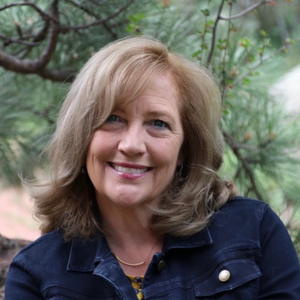CBIS Spotlight: Jill Ferrington
Categories: ACBIS Insider, Professionals

Jill Ferrington, MS, CRC, CBIS is a Technical Assistance Advisor at the National Association of State Head Injury Administrators (NASHIA). Prior to her role with NASHIA, Jill led disability initiatives in the areas of brain injury, competitive integrated employment (including self-employment) for people with disabilities, and Medicaid Buy-In. Jill co-leads NASHIA’s Leading Practices Academy on Criminal and Juvenile Justice focused on infrastructure development and system capacity building for brain injury identification and support. Jill has a graduate degree in rehabilitation services from Florida State University.
What made you choose a career in brain injury? Why are you passionate about BI?
Before I started my career in public vocational rehabilitation, I interned in Florida’s Brain and Spinal Cord Injury Program. I knew very quickly, after meeting with newly injured patients and their families, what a life-changing event brain injury can be. What I have come to learn since is that many people experience lifelong symptoms related to brain injury even if they were never hospitalized. Individuals may not even be aware that brain injury symptoms could be a source of their daily struggles and life setbacks. When brain injury is identified through screening and when supports are put into place to address symptoms, lives can change and success can result – in employment, in relationships, in self-confidence, in overall quality of life.
We know that the incidence of BI in the juvenile/criminal justice system is high and often under-diagnosed, how does this impact services and care for these individuals? What needs to be done to better serve these individuals?
Undiagnosed and unaddressed brain injury can spell trouble for justice-connected adults and youth attempting to improve their lives with support from service systems. The young adult working to get a degree, the job seeker trying to obtain a meaningful job, the client working to address behavioral health conditions through psychotherapy — when brain injury is present, these individuals may come across as undependable, unmotivated, overly emotional, forgetful, etc. When counselors, educators, case managers, and others take the time to get to know a person and ask a few simple screening questions, lifetime exposure to brain injury may be uncovered. When individuals then have the opportunity to learn about their brain injury and professionals adjust their service delivery approaches, successful engagement in services can result. Screening takes a short amount of time in the working alliance, but it can save time in the end.
How has having your CBIS helped you in your daily work? Why is it important to you?
Having certification in brain injury specialization has resulted in a more well-rounded approach to my work as a technical assistance advisor with NASHIA. I look at brain injury through various lenses of medical, neurocognitive and psychosocial aspects, community integration, natural supports including family and caregivers, and self-advocacy. I had an excellent CBIST who used real world examples and dialogue to help me prepare for the exam. I appreciate that CBIS has helped me move from a certified rehabilitation counselor (CRC) generalist to a brain injury specialist.
Are you involved with BIAA or ACBIS in other ways (besides your CBIS certification)?
I’m fortunate to have the opportunity to work and partner with BIAA affiliates in my advising and consulting work with states — including Georgia, Missouri, and North Carolina over the last year. I also appreciate the BIAA benefits of educational events, the Journal of Head Trauma Rehabilitation, and other publications that help me stay up-to-date in my profession.
